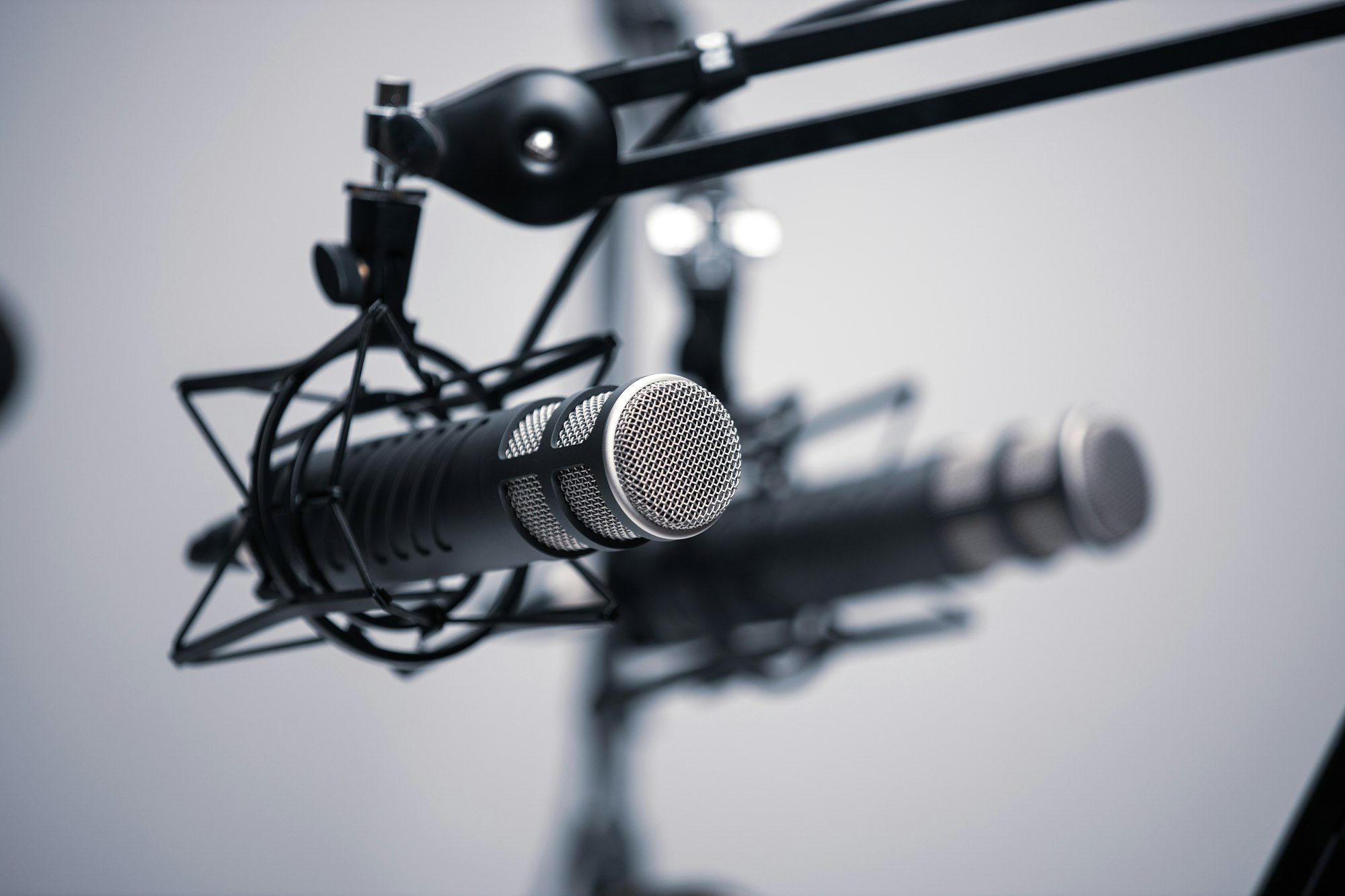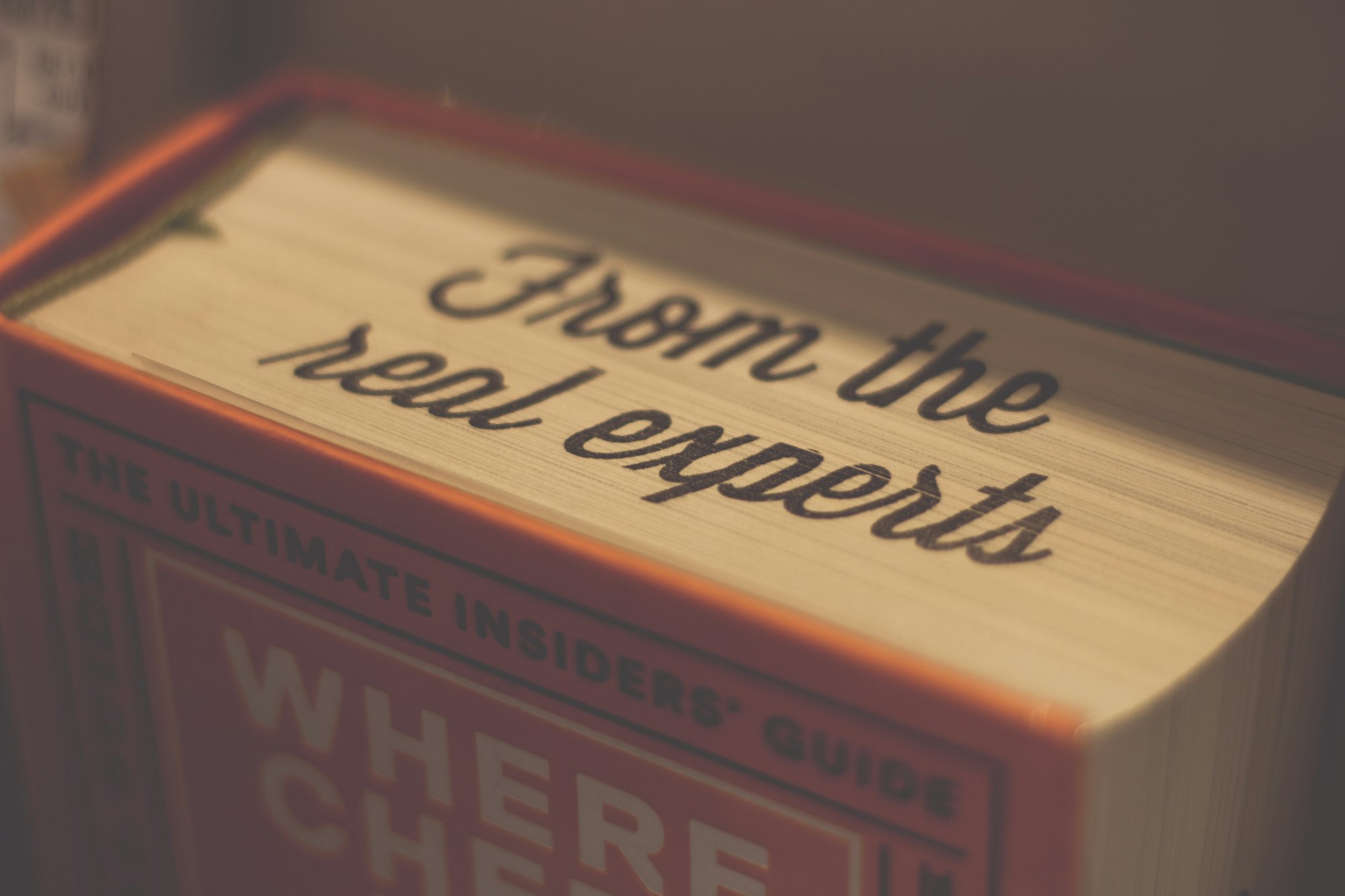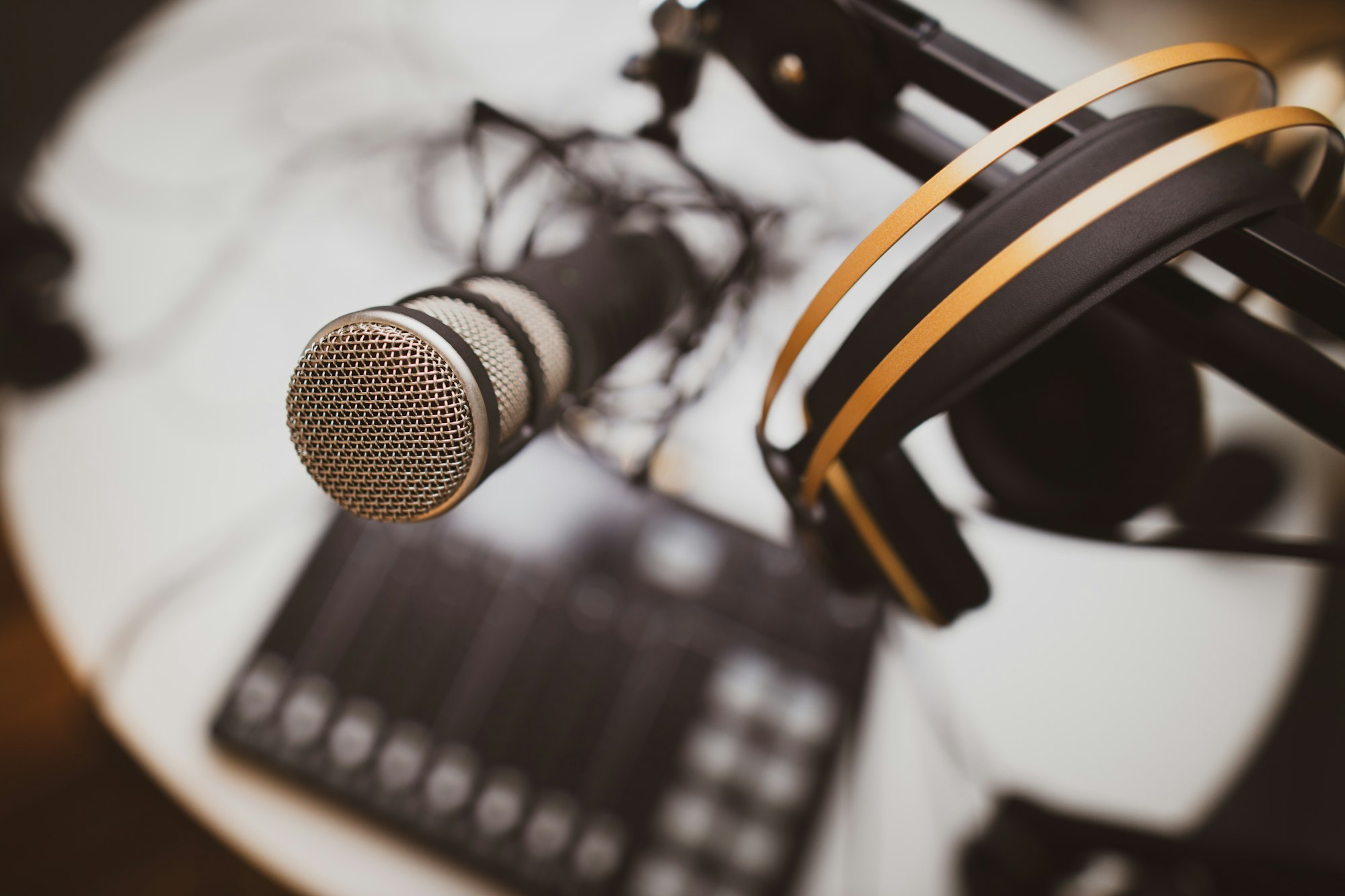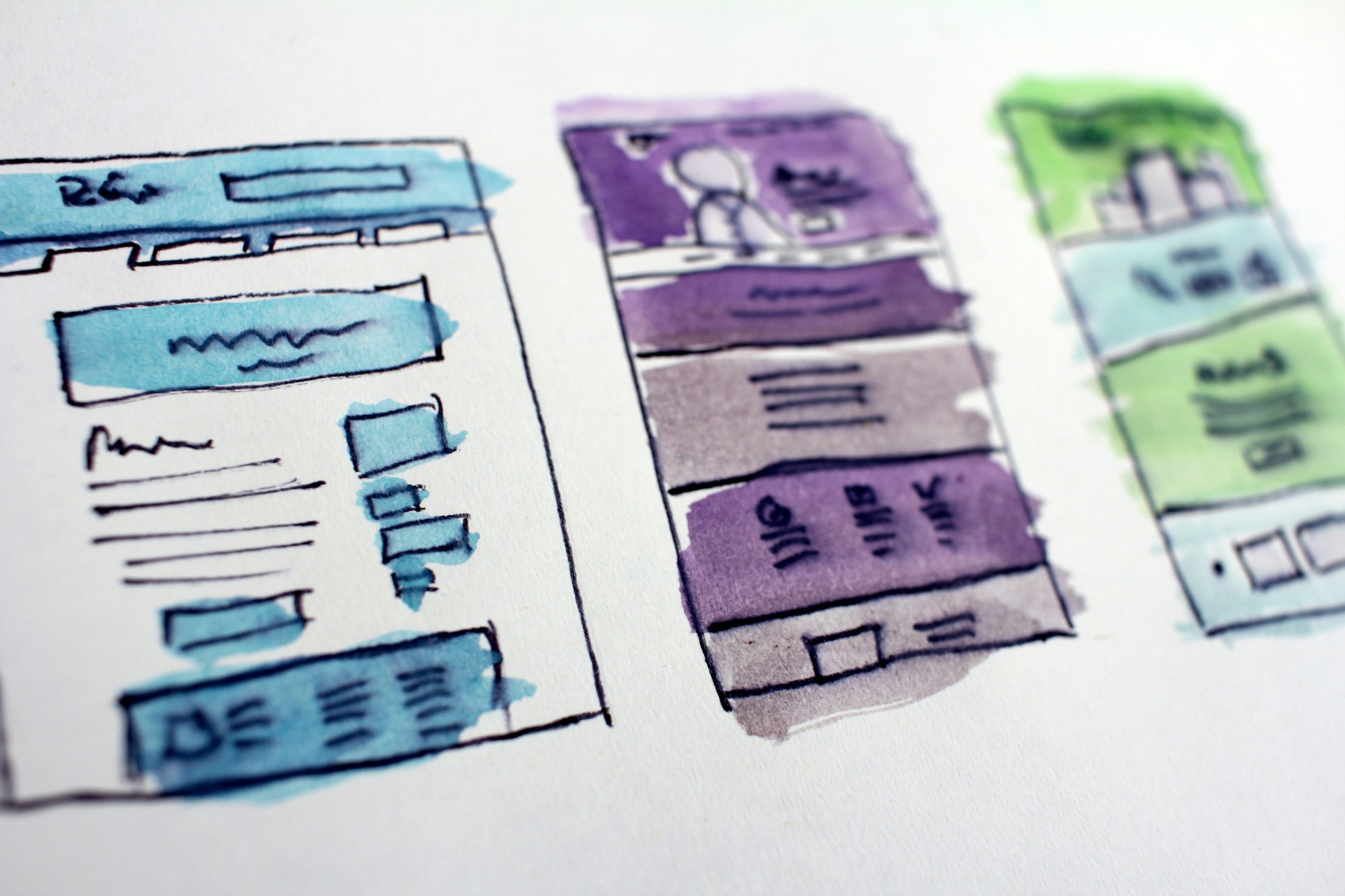B2B Podcasting: The Ultimate Guide

If you're a business-to-business (B2B) marketer, you probably know that podcasts are a great way to reach your audience.
According to a study conducted by Edison Research and Triton Digital, nearly one-third of Americans are regularly tuning in to podcasts. This shows that podcasts are becoming more and more popular and that they're a great way to enhance your B2B marketing strategy.
This guide will discuss everything you need to know about B2B podcasting. We'll cover the benefits of podcasting, creating and launching a podcast, and how to succeed with your marketing efforts. Are you ready to learn more? Let's get started!
What are B2B Podcasts and How Are They Different From Regular Podcasts?
Conventional podcasts are primarily focused on entertaining listeners. For example, there are comedy podcasts, true crime podcasts, and many others.
Meanwhile, B2B podcasting is a type of podcast geared explicitly towards businesses and their target audiences. These podcasts usually feature interviews with industry experts, tips on how to succeed in the applicable industry, case studies, and more. They have strong niches and are focused on providing value to a specific ICP.
While regular podcasts can be entertaining and informative, B2B podcasts offer a more focused approach to business-related topics.
Benefits of B2B Podcasts For Your Business
There are many benefits of B2B podcasting, both for businesses and their audiences.

B2B Podcasts Help Build Thought Leadership
Thought leaders are individuals or businesses recognized as experts in their respective industries. They're the ones that people look to when they need guidance or advice on specific topics.
Creating a B2B podcast can help position you and your business as a thought leader in your industry. You'll be able to share your expertise and knowledge with your audience through your podcast episodes.
As a result, more people will begin to see your business as an authority figure in your industry. And when they need advice on certain topics, they'll be more likely to turn to you for help.
Even better, when they're looking for a business solution, they'll come turn to you as customers.
Reach a Wider Audience
Traditional digital marketing channels like PPC ads can be quite expensive. As consumer privacy becomes a bigger priority, ad tracking is less effective and costs are rising.
Podcasting offers a great way to reach a wider audience without breaking the bank. This is because you can produce high-quality podcast episodes without spending a lot of money. The connections you build through them will be organic, genuine business relationships.
Plus, there are a variety of ways to promote your podcast episodes. Recycling and repurposing content is a great way to get more bang for your buck, extending the reach and lifecycle of your content.
For example, you can take podcast episodes and turn them into blog posts, newsletters, social media updates, and even video content.
By doing this, you'll be able to reach more people without spending a lot of money on marketing.
Increased Brand Awareness and Recognition
Brand awareness is the ability of people to recognize and remember your brand. The more brand awareness you have, the more likely people will be to do business with you.
A report by Claritas indicates that podcasts can increase brand awareness by up to 30 times more than traditional advertising and marketing channels. Furthermore, podcasts allow you to interact with the audience in a more personal way.
Your audience does not listen to you because they want to buy or be sold to. They listen because they are seeking guidance or advice on a topic that you are an expert in. Identifying your niche is a powerful way to stand out. It is a powerful residual effect that many listeners soon become customers.

Accessible
People can listen to podcasts anywhere and at any time.
This is a great benefit for busy professionals who don't have a lot of time to sit down and read a blog post or watch a video. 65% of people who listens to podcasts use their mobile devices. They can listen to your podcast episodes while commuting to work, working out at the gym, or even doing chores around the house.
Another great benefit of podcasting is that it's very flexible. You can release new episodes as often or as little as you want. Some businesses release new episodes every week, while others release new episodes every month.
It all depends on your schedule and how often you're able to produce new content.
How To Get Started With B2B Podcasting
Starting a B2B podcast takes time and effort - all great things usually do. However, it's worth it in the end. Here are the steps that you need to take:
Planning and Preparation
The first step is to plan and prepare for your podcast. The five questions that you need to answer are:
- Who is your target audience? Not everyone's podcast audience will be the same. You must figure out who you want to target with your podcast episodes. Your company's podcast should appeal to a specific demographic that you can connect with.
- Why are you starting a podcast? There are lots of brands that have podcasts. Most of the time, these podcasts have little to no direction. Your podcast will get lost in the sea of other podcasts without a clear purpose.

- What topics will you cover? You should have a general idea of the topics you'll cover on your podcast. This doesn't mean that you need to plan out every single episode. But, you should at least have an idea of the direction that your podcast will be going.
- What are your goals? Is it to increase brand awareness? Is it to generate leads? Or is it something else entirely? By setting goals, you'll be able to measure the success of your podcast.
- What is the format? The format of your podcast is just as important as the content. You need to decide if you want to do an interview show, a solo show, or a panel discussion. If you're not sure which format would be best for your business, try experimenting with different types of episodes. See what resonates well with your audience and go from there.
This is the most critical step because it will determine the success of your podcast. By taking the time to answer these questions, you'll be able to create a roadmap for your podcast. And this will make it easier for you to produce high-quality content that your audience will love.
BONUS TIP: If you're struggling to develop ideas for your podcast, consider doing a series of interviews with experts in your industry. It will not only provide value for your listeners, but it will also help position you as a thought leader in your space.
Pre-Production
The next step is pre-production. It is where you'll start to put your plan into action.
You need to invest in the right equipment. The most common type of equipment that people use for podcasting are:
You don't need to break the bank to get started with podcasting. You can start with the basics and upgrade your equipment as you go.
The other important part of pre-production is creating an outline. This doesn't mean that you need to write out every word you're going to say. But, it's helpful to have a general idea of what you want to talk about. This will help keep you on track and prevent you from rambling on tangents.
If you plan to have guests on your show, you need to reach out to them and schedule an interview. The last thing you want is to have an empty spot on your podcast episode because you couldn't find a guest.
Production
This is where the magic happens.
It's time to start recording your podcast episodes.
If you're doing a solo show, all you have to do is hit record and start talking. Solo shows - contrary to popular belief – are actually much harder than interview shows. If you're recording solo, you've got to carry the episode by yourself.
We recommend shows that have guests. The conversations are easier to support. If you're doing an interview show, though, you need to take a few more steps.
Before you start the interview, it's essential to give out outlines to your guests. This will help them prepare for the discussion and ensure that they're on the same page as you.
During the interview, it's important to be an active listener. You should be engaging with your guests and asking follow-up questions. The goal is to have a conversation, not just a one-sided interview. Q&A's are boring. Lively conversations are exciting.
When recording, make sure that you're using a high-quality microphone and in a recording environment that is free from distractions, background noise, and echo.
Post-Production
The post-production phase is where you'll take the raw recording and turn it into a finished podcast episode.
The first thing you need to do is edit the audio. This includes removing any pauses, stutters, fillers, or "umm"s. You want your audio to be as clean as possible before publishing it. Remember not to overdo it with the editing. You don't want your audio to sound like it's been heavily edited.
The next and final step is to mix in any additional music or sound effects you want to use. This is optional, but it can help add more production value to your podcast.
Work with an agency
If this sounds like a lot of work to you, you're right. It can be quite difficult. A lot of businesses find it easier to work with a podcast production agency.

How To Succeed With B2B Podcasting
Since many businesses are still not podcasting, there is ample opportunity for you to get ahead of the competition.
Think working with an agency is the way to go for you brand?

Here are some additional pointers on how to do well with B2B podcasting:
Research and Create Fresh Content
You must research your topics inside out before releasing an episode. Try to see if the subject will resonate with your audience and make a significant impact. Questions that you should be asking yourself are: What are my audience's pain points? What content will add the most value? How can I make this information digestible for my listeners?
There are thousands of podcasts out there, which is why you need to make sure that your content is fresh and unique. Don't just regurgitate information that people have already heard a million times.
Another thing to keep in mind is that you don't want your podcast episodes to sound like a sales pitch. Yes, you want to promote your business. But, that doesn't mean that every episode should be about selling your products or services.
The goal is to provide value and build relationships with your listeners. If you do that, the sales will come naturally.
Iterate
You should constantly test and measure to see what's working and what's not. This applies to everything from the length of your episodes to the format of your show.
There is no one perfect formula for success. You need to experiment and figure out what works best for you and your audience. The only way to do that is to test and measure continuously.
Question everything - just because everyone else follows a certain playbook doesn't mean it's the one that will generate results.
You should adjust your objectives and strategies as you go along as you learn more about your audience and what they want.
Create an Effective Marketing Strategy
If you want people to listen to your podcast, you need to have an effective marketing strategy.
Ensure you submit your episodes to popular directories like iTunes, Spotify, and Stitcher.
Digital marketing channels such as LinkedIn, Twitter, and Facebook are great places to start promoting your podcast.
Word-of-mouth marketing is also a powerful tool. If you can get some of your listeners to share your episodes with their network, then you'll be able to reach a whole new audience.
The key is to be strategic about your marketing and to promote your podcast in the places where your target audience is hanging out.
Final Thoughts
B2B businesses are still largely underserved in the podcasting world, which gives you a big opportunity to get ahead of the competition.
Podcasting can be a great way to build relationships with your audience and promote your business. It's not enough to just create a podcast and hope for the best.
By following the tips in this guide, you'll be able to launch a successful B2B podcast that will help take your business to the next level.
Want to learn more? Drop us a line.

